The Best Tea for Sleep! From the Opulent Orients to the Roman Pantheons
Contents hide Sleep Related Was this post helpful? Sleep Related Was this post helpful? Let us know if you liked the post. That’s the only way we can improve. Yes 0 No 0
Contents hide Sleep Related Was this post helpful? Sleep Related Was this post helpful? Let us know if you liked the post. That’s the only way we can improve. Yes 0 No 0
Tea has been a part of the global culture for at least the last 100 years. At present, it is one of the most popular refreshments in the world. It was originally a part of the East and South East Asian culture, but with the spread of trade relations tea soon spread to the western world. Experts find the first mention of tea in Chinese medicine in the 2737 BC when they emperors hailed it as an elixir. Very soon, emperors and feudal lords of the eastern provinces started popularizing tea as a recreational drink.
It was the 16th century when this magical brew made its first mark in Europe after traveling the seven seas with Portuguese merchants and priests. After that, it did not take long for tea to become a part of every European household and reach the new colonies on merchant ships. The mildly strong, rejuvenating taste soon won over the entire world with its unique refreshing and healing properties.
Right now, tea is the most popular hot brew in the US and Europe. You can find different kinds of tea all across supermarkets, specialist stores, grocery stores, bodegas and convenience stores. It is ruling the market through one-dip tea bags, loose leaves in limited edition cans, conveniently packaged cardboard boxes, ready-mix bottles and designer mixes in handmade diffusers.
Thanks to the huge variation in the flavor, strength, and effects, different regions of the world have different favorites. Black, green and white teas are the most common variants. However, you will often come across several herbal concoctions that add recognizable regional flavors to the teas along with distinct pro-health properties.
Several countries across the world have associated drinking special brews containing tea leaves and a varied mix of different herbs, roots, leaves, and flowers with therapeutic outcomes. Since times immemorial, people have been drinking green tea to stimulate proper digestion, induce weight loss and release toxins from the system. In ancient Egypt, people used chamomile tea to experience relief from cold.
Many experts state that the first mention of tea and sleep appears together in the ancient Egyptian texts, while others often state that the first juxtaposition of tea and sleep first occur in the ancient Roman texts. Irrespective of which civilization found the relationship between tea and sleep, the truth in the belief still stands strong.
The most famous recent studies involving tea shed light on the relationship between tea and relaxation. Sipping warm tea before bedtime is not a new practice, and that provides us much evidence to substantiate the relationship.
Over the years, a few types of brews have become more famous than the other for their extraordinary ability to improve sleep quality. So, without further ado, here are some of the best sleepy-time tea recipes, secrets and facts that we have collected from around the world, just for you.

There is no adult or child in the country, who has not heard about chamomile tea and its bedtime marvels. This might partially be because drinking this best tea for sleep has been a practice for the last 4000 years or partially because of its recurring mention in popular culture. We have seen the mention of it in popular movies, TV shows, and talk shows.
While some swear by its tranquilizing abilities, others are loyal to chamomile tea for its anti-anxiety and antidepressant abilities. Recent research on the effects of the ingredients of chamomile tea on the human physiology has confirmed its relaxing effects on the human mind and body. It has several ingredients that can relax muscles and relieve the stress accumulated by an entire day’s work.
A 2011 study, by a research team under the leadership of Susanna M. Zick involved two groups. One group was the control, and the other received chamomile extract two times a day for over a month. The group that received placebo doses showed no effect on sleep quality, sleep duration and onset times. However, the one that received the actual extract showed lower levels of stress and better day-time functionality.
A similar study on nursing home residents suffering from insomnia showed that the group that received chamomile extract enjoyed lower levels of anxiety, stress and better sleep initiation. The second study involved a group of 60 patients cum subjects, 30 among them took 400mg of chamomile extract on a regular basis. This study showed that chamomile improved sleep quality in those who take the extract on a regular basis.
Latest research exhibits its safety on post-partum women. Pregnancy can often cause strange sleep disturbances due to hormonal upheavals and general physiological discomfort. The post-partum period is not much different. Another study on post-partum women shows that those who drank tea with chamomile extract experienced more relaxing sleep with up to 15 minutes improvement in initiation time. Most importantly, they woke up less frequently during the night as compared to the ones who did not receive the extract.
Over the years, pharmaceutical companies have been making millions by designing and selling drugs that can manipulate human circadian rhythm or allegedly improve sleep quality. Even today, there is no known research can completely highlight the way in which an anti-depressant works to relieve depression and anxiety. However, human beings have been successfully treating these long-standing problems with natural extracts like chamomile in their nighttime tea.
Natural ingredients in food and beverages often have a lesser impact on health as compared to the chemical ingredients pharmaceutical companies design to induce sleep or hormone (and neurotransmitter) production. People have hailed chamomile through the rise and fall of several civilizations; this gives us more than enough reason to give this magical elixir a try.
There are several ways to make chamomile tea. While some people like to use the dried flowers directly in the brew, others prefer using essential oils only. Which process is more effective? Do you need to add something more to make it more potent? Today, we will answer all the questions with the best recipe for chamomile herbal tea.
You should adjust the level of chamomile in your tea as per your taste or the strength. Several people like to add some wild honey to their tea. Pure, organic honey does not compromise the action of chamomile, so you can go ahead and indulge in some pre-bedtime sweetness if you want.
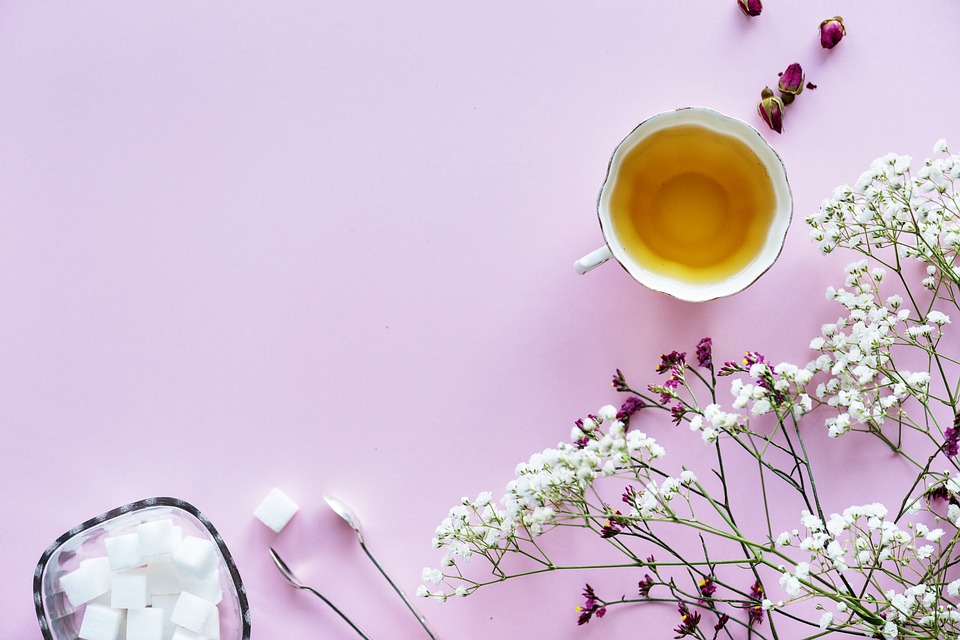
Long before valerian root became a part of western alternative medicine, people have been using Valerian for its somnolent properties. Several cultures have been using this root for treating nervousness, headaches, and insomnia for centuries. In fact, records from the Second World War mention the use of valerian roots to treat war fatigue, anxiety and stress in soldiers.
This was especially seen in England. Right now, several studies highlight the use of valerian as a sleeping aid across Europe and the USA. In English, people often call it setwall. Its distinctive odor is quite unpleasant, and that is the primary reason it has become a part of the bedtime tea drinking ritual in multiple countries. In fact, Greek medicine experts and philosophers often used the extracts of the valerian plant to treat gastrointestinal spasms and digestive distress.
There have been no new revelations about the mechanism of action of the components of valerian on sleep or anxiety, but the consumption of the root extract along with tea does improve sleep onset time and quality. One of the more prevalent theories states that valerian root extracts can boost the creation of gamma-aminobutyric acid or GABA in the synapses. This is a neurotransmitter that promotes the feelings of satiation, happiness, and relaxation. In ways, it acts like the popular anti-depressant Xanax that hundreds of thousands use on a regular basis to combat depression.
In sharp contrast to most of the sleeping pills and anti-depressants that are ever so popular in the market today, valerian roots do not have the adverse side effects. Most of the sleeping medications as well as the anti-depressants and anti-anxiety meds in the market tend to make the patients drowsy the next day or to induce a haze in thoughts. Living with anti-depressants or anxiety medication can be very tough even for the strongest of the individuals, but valerian makes this process a lot easier. Transiting from disturbed sleep and nightmares, to sound dreamless sleep with little to no anxiety problems becomes a reality without the price of next-day drowsiness or delirium.
A study involving 27 people showed that almost 89% of the participants experienced better sleep after consuming valerian extract for four weeks continuously. Another larger-scale double-blind study on 128 people shows that the participants who receive 400mg of the extract took lesser time to fall asleep as compared to the ones who did not. In another double-blind study, researchers treated over 75 participants with 600mg of commercial production of valerian extract or 10mg of Oxazepam. This study continued for 28 days, and the results depended on a 4-step rating scale at the end of the process. Each participant receiving the extract showed improvements in sleep, but the ones who received valerian reported fewer side effects.
Sadly, none of these studies show any documentation of data involving heart rate or brainwave activities during sleep. Nonetheless, drinking tea with valerian root helps in , improvement of sleep by increasing GABA activity without adverse side effects.
Valerian root is another one of nature’s powerful somnolent ingredients. You can use the root to brew your tea, or you can buy ready-to-steep valerian and green tea mixes for a quick cup before bedtime.
Word of caution: valerian root is bitter. Some people find it an intriguing taste, while others find it difficult to drink. So, start with a smaller quantity of valerian root in your infuser and do not forget to add a dash of honey.
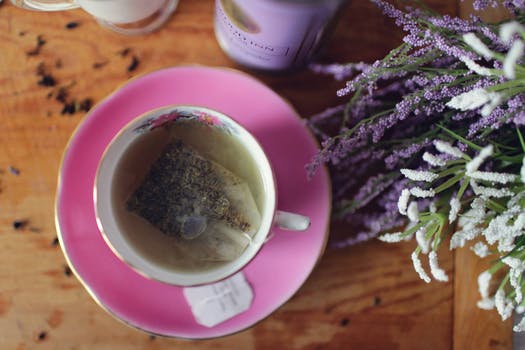
Valerian and chamomile reign supreme among all sleepy-tea concoctions, but lavender has its charm. First, well, lavender simply smells amazing. There can be no one who can hate this flower and the aroma.
Over the years, people have used lavender in incense sticks, room fresheners, aromatherapy and in cosmetics to induce a soothing effect on the body and mind. The small purple flowers hold a lot of healing and relaxing power.
Lavender has been a favorite of the Romans and the Greeks for its calming properties. They would often infuse their bathwater and bathing oils with extracts from the purple inflorescences.
Right now, getting your hands on lavender extract is very easy. Any health conscious and home DIY lover always has some lavender essential oil within an arm’s reach. What was once endemic to only Mediterranean regions now grows worldwide irrespective of weather and climate. People have taken the effort to cultivate lavender like any other precious food crop due to its widespread positive health effects.
A study from the last decade shows that Taiwanese post-natal women, who took time to appreciate the aroma of lavender from time to time and even drank its tea, showed fewer symptoms of fatigue. This study duration was two weeks and the participants who drank it twice a day showed significantly less stress levels as compared to women who did not. Unlike the studies with valerian root, the one involving 67 women taking lavender extract with tea showed a distinct reduction in heart rate fluctuations.
Scientific research over the last few decades have gone on to prove how lavender has helped in the improvement of sleep quality, induced REM sleep and decreased the incidence sleep-related sleep disorders in participants who consumed the tea on a regular basis.
Making lavender tea is quite straightforward, especially since the flowers are quite delectable and require very little preparation.
Add some wildflower honey or regular sweetener to the tea for added taste.
Many people prefer to use chamomile and lavender together in the brew in a 50-50 mixture. If you are steeping the two together, always steep for about 10 minutes to get the proper extract.
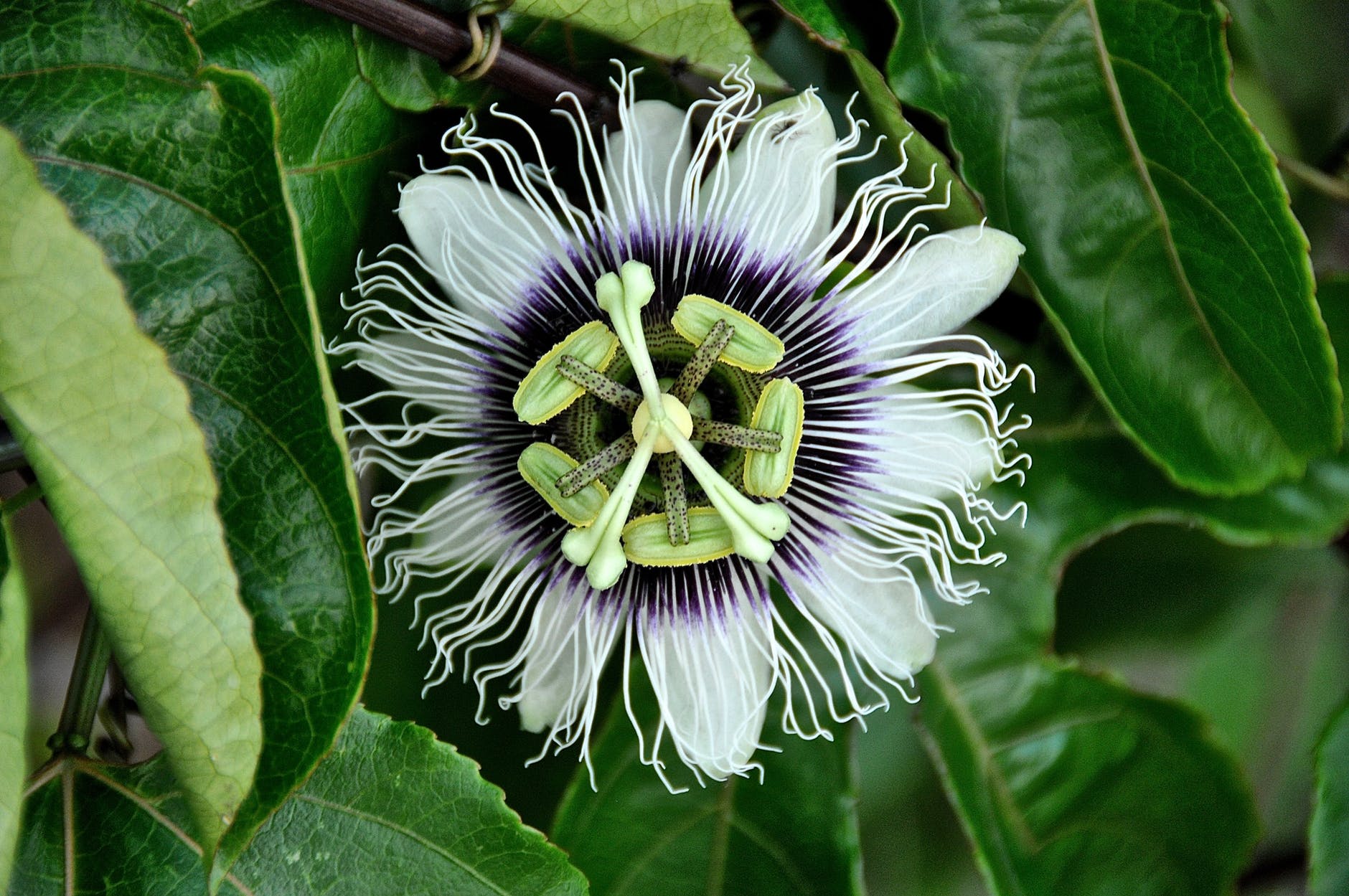
Traditionally, people have used passionflower tea to reduce anxiety levels. Anything that reduces your stress and anxiety automatically contributes to better sleep quality.
Passionflower tea has been around for several centuries due to its calming effects on the body and mind. Native Americans have relied on this natural component for its medicinal effects. It can treat boils, wounds and even cure liver problems.
However, the disease the plagues the modern society most is insomnia. Children, young adults, adults and the elderly suffer from the deleterious effects of chronic lack of sleep due to one reason or another. The increasing stress levels and rampant use of technology with blue light emission often exacerbate the effects of insomnia in today’s society. There has never been a greater need for health-boosting and calming tea as today.
There are over 500 recognized species of passion flower. They belong to the Passiflora family, and almost all the species have several medicinal benefits. The name comes from the resemblance of the passionflower with the crucifix that Spanish merchants and colonists thought were significant among the species Peruvians used for treating several illnesses. Right now, passionflower is a very common flavor in aloe juices, fruit blasts, fruit juices and mocktails all across Europe and the US.
The National Center for Complementary and Integrative Health (NCCIH) has led several studies that have led to the discovery of the scientific bases of passionflower’s calming effects. This is a soothing concoction that increases the levels of GABA just like valerian. An increase in GABA helps to calm the drinker down and induce a state of tranquility. This is the reason several cultures and historic civilizations including the Native Americans, used extracts from the passionflower in their herbal teas to treat the distressed. In fact, several studies of the ancient culture show the use of this extract in the treatment of stomach problems including ulcers.
A recent study from the Phytotherapy Research shows that people who can drink passionflower herbal tea on a regular basis, can improve their REM sleep and experience lower stress levels. In adults, this flower extract can regulate sleep cycles and regularize sleep hours. Endless night shifts and stress from late night work are the main causes of skyrocketing stress levels among the majority of American and urban European youth. Studies show that people, who choose natural remedies like passionflower herbal tea over chemically synthesized sleep-inducing compounds or tranquilizers, often receive better results with fewer side effects. Passionflower tea often contains other ingredients like chamomile, lavender and rose to create a delectable blend of delicate notes that soothe the olfactory senses and induces a deep harmony with the surroundings before bedtime.
Passionflower flavor is one the most popular ice cream, iced tea and slurpee flavors in several countries now. You could easily mistake it for a fad, but the recipes for passionflower tea and iced tea have existed for centuries. Today, we will give you the simplest recipe that can help you sleep better at night with little to no side effects.
You can always customize your tea according to your palate. You can add honey, lemon balm or mint to your passionflower tea to make the aroma enthralling and soothing at the same time.
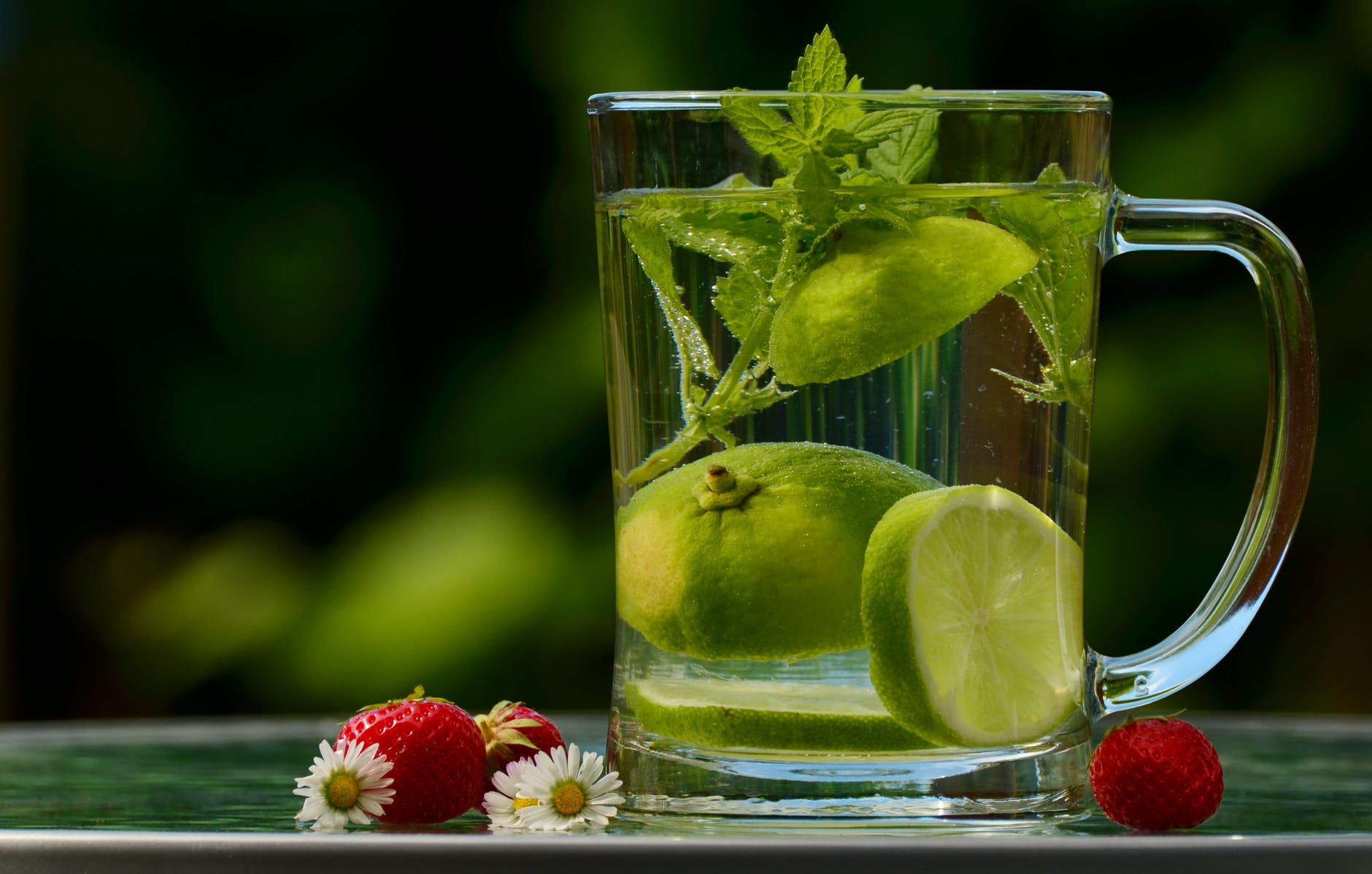
Lemon balm does not belong to the lemon or lime family. It does not have a zesty flavor, but it does have a delicate lemony aroma and the eponymous freshness of mint. It belongs to the mint family, and it goes perfectly with all kinds of tea. People have been using lemon balm tea for centuries since it has myriads of medicinal and therapeutic effects.
You will be able to find the mention of lemon balm in herbal tea recipes and medical journals from over 100 years ago. No one knows for sure who discovered the use of it in medicine, but historians have found its first mention in Roman and Greek ancient medicines. If you dig deeper, you will also be able to find the mention of the use of lemon balm spirits in west European folklore that is over a millennium old.
Along with several kinds of research that show the effect of lemon balm tea on stress-induced anxiety disorders, several studies show the use of lemon balm in the treatment and prevention of Alzheimer’s disease. It is a degenerative disorder that is genetic. According to the Georgetown University Medical Center, lemon balm can reduce the anxiety levels in people suffering from different progressions of Alzheimer’s disease.
In people with susceptibility towards Alzheimer’s, it can help keep the brain healthy and the neuronal connections strong by stimulating the right kind of neurotransmitters. Another recent study from the University of Maryland Medical Center shows that it can improve cognitive function among those suffering from the neurodegenerative disease.
Drinking lemon balm tea has a soothing effect on the digestive system, heart, brain, and the muscular system. It relaxes every system in the body. Therefore, it is quite easy to imagine why tea with lemon balm extract in it is ideal for the improvement of sleep. University of Michigan Health System cites a study on the comparative effects of lemon balm extract and Halcion. The herbal concoction was as effective as the triazolam or Halcion in enhancing the sleep quality in participants.
In most of the cases, you will find the researchers have used lemon balm in combination with other compounds like lavender, hops, chamomile, and valerian to achieve the best possible results. Nonetheless, in almost all research from noteworthy institutes and universities, groups have managed to show the benefits of drinking lemon balm herbal tea in human beings.
Just like every other herbal tea blend, you can choose to brew your tea from the dried leaves of lemon balm, or you can use the fresh leaves for the same. Dried leaves have the compounds in a much-concentrated form, so you should always try to take a lesser amount of dried ingredients and more fresh ingredients.
Several people also believe that the best way to enjoy the benefits of a good lemon balm tea on a sunny day is by making Sun Tea.
For making Sun Tea – keep the herbs in the jar and pour cool (not cold) water on it. Place it in the sun for a few hours. Keep the lid of the jar closed; you do not want the delicate aromas to escape.
Now, add honey or some lemon to enjoy!
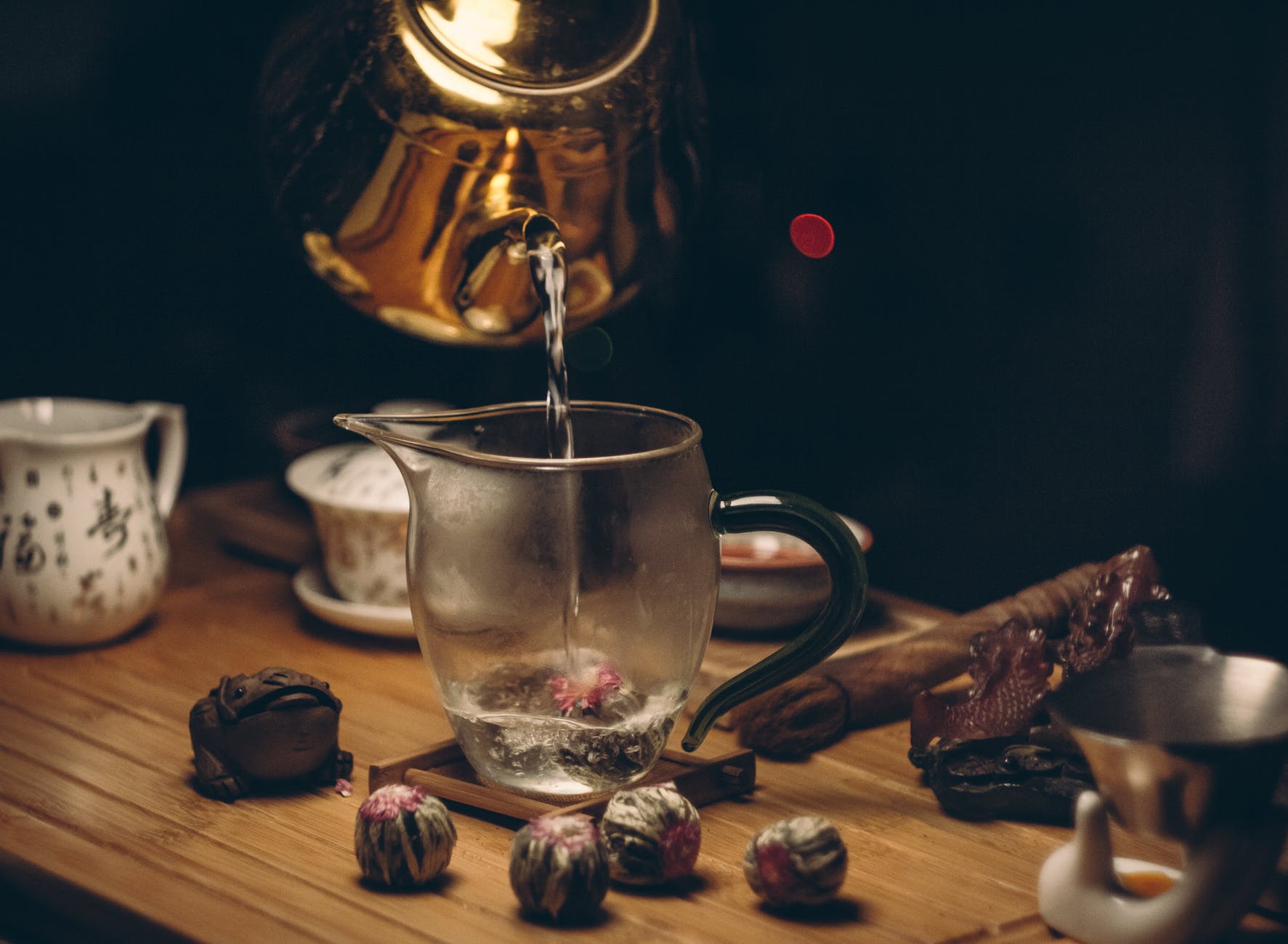
The magnolia tree has been around for over a hundred million years. It has evolved to adapt to the whimsies of nature, and over the last few million years, it has acquired several compounds that contribute to unique health benefits.
Chinese medicine has been using the magnolia tree for the last few millennia to treat a plethora of common and not-so-common afflictions among people.
Ancient texts on the medicinal properties of magnolia show the presence of Honokiol. It is an organic compound that occurs abundantly in the stems and dried flower buds.
Honokiol modifies the GABA receptors in a likely competitive reaction and increases the concentration of neurotransmitters in the brain. This boosts the release of stress relief hormones that can relieve muscle fatigue and induce sleep. In the last few decades, there has been substantial work on the effects of magnolia bark tea on insomnia, sleep apnea, and other sleep disorders. There have been several studies on mammalian species that show the direct correlation between an increase in dosage of magnolia bark extract in tea along with a decrease in the time it took to fall asleep.
Preliminary research involving magnolia tree bark tea shows an improvement in both sleep quality and duration in the human subjects. There has been no observation of adverse side effects upon daily consumption of tea made with magnolia bark extracts, provided the process is correct, and it uses the right amount of ingredients.
Magnolia Bark Extract Recipe
You can always find magnolia bark extracts and buds for sale online. You should take no more than 500mg daily in the form of an herbal tea mix. Magnolia bark extract is easily soluble in water.
You can always add other ingredients to the tea to make it less bitter. Try adding lemon balm, lemon, and honey. You can also make delicious smoothies and add the extract to them for an extra health boost.
In modern-day USA, Europe, and East Asian countries, you will find the widespread practice of drinking tea before bedtime. While many believe that a warm beverage with low (to no) caffeine content can stimulate muscle relaxation and induce better quality sleep, others often add several other ingredients like chamomile, ginseng, and valerian to common tea brews to improve the quality of sleep.
There are several popular types and brews that even children of these regions enjoy. In fact, starting this practice early in life often gifts these children with better immunity, better physical strength, and mental acumen. Sleep decides a huge part of our day, and proper sleep can contribute to a stronger immune system. Therefore, people, who encourage the practice of consuming herbal tea before sleep often, show better resistance to viral diseases, lesser susceptibility to degenerative diseases and autoimmune disorders.
Many long-standing studies have often highlighted the strong relationship between regular consumption of certain types of tea with immunity towards tumor progression and different types of cancer. You can be a dedicated tea drinker or a beginner, but you should definitely give these herbal teas a go to see a positive change in your life.
Co-founder of Counting Sheep and Sleepaholic